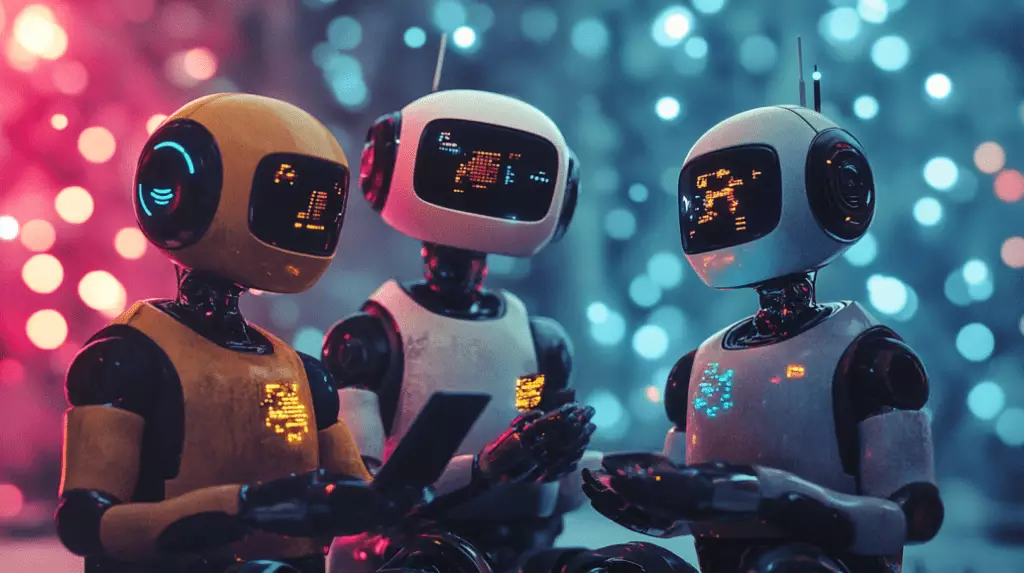The Model Context Protocol (MCP) is on a trajectory to redefine how artificial intelligence agents communicate with tools, data, and interfaces across various platforms. Recently, the development team behind MCP unveiled an updated specification that brings a host of enhancements aimed at increasing the security, capability, and interoperability of AI agents. This isn’t merely an incremental upgrade but a considerable leap, highlighting the urgent need for standardization in AI communication methods.
In the world of AI, where different applications often operate in isolated silos, the emergence of a universal communication protocol is significant. By providing a shared language for AI agents, MCP eliminates the discrepancies that have hindered seamless interactions. The recent announcement by OpenAI, which confirmed support for MCP across its products, including the much-anticipated ChatGPT desktop application, serves as a testament to the growing importance of this protocol. Sam Altman, OpenAI’s CEO, voiced excitement over the rapid integration of MCP, signaling a paradigm shift in the development landscape.
Key Innovations in the Latest MCP Update
The March update of the MCP introduces several pivotal features that enhance its functionality and security.
1. OAuth 2.1-Based Authorization Framework: At the heart of this update lies a robust authorization framework designed to safeguard agent-server communication. With rising concerns over security in AI interactions, the introduction of OAuth 2.1 is poised to fortify data integrity and trustworthiness.
2. Streamable HTTP Transport: Departing from the older HTTP+SSE format, the new streamable HTTP transport enables real-time, bidirectional data flow. This not only facilitates instantaneous communication but also minimizes latency, enhancing the efficiency of agent-tool interactions.
3. JSON-RPC Batching: Efficiency is further increased with the implementation of JSON-RPC batching, which allows multiple requests to be aggregated and sent in a single transmission. This change is vital for scenarios where rapid interactions are necessary, as it reduces the overhead associated with network communication.
4. Tool Annotations: Rich metadata regarding tool behavior is incorporated through tool annotations, allowing AIs to understand more about the available tools. This additional layer of intelligence not only enhances discovery but also enables more complex reasoning by AI agents.
These innovations embody a forward-thinking mindset and demonstrate a commitment to shaping an ecosystem where AI can learn, adapt, and operate with increased dexterity.
OpenAI and Microsoft: Pioneers of the MCP Era
The backing of industry heavyweights like OpenAI and Microsoft is fundamental to elevating MCP from a mere concept to a functional reality. The latter’s recent launch of the Playwright-MCP server highlights a transformative application of this protocol. By allowing AI agents like Claude to autonomously navigate the web, the boundaries of what these agents can achieve are rapidly expanding. Claude can now simulate human-like interactions with the digital world—clicking links, filling out forms, and extracting information—enhancing the breadth of tasks that AI can assist with in practical scenarios.
Microsoft’s involvement not only legitimizes MCP but actively drives its adoption across various sectors. As organizations begin leaning into this collaborative infrastructure, they will witness a reinvention of what it means for AI to assist in day-to-day operations.
The Growing Ecosystem of Support
Since its inception by Anthropic in late 2023, the Model Context Protocol has quickly amassed a coalition of supporters, including pivotal players like LangChain and now Microsoft. The willingness of traditionally competitive firms such as OpenAI and Microsoft to embrace MCP illustrates a broader industry acknowledgment: the future of AI relies heavily on interoperability and collaborative advancement.
The recent flurry of support has sparked discussions about the potential for MCP to establish itself as the universal language of AI functionalities. It legitimizes the trend toward standardization that is crucial for fostering innovation. Aligning with protocols like OpenAI’s API formats, MCP stands to create a landscape where developers can build applications without worrying about compatibility issues across different AI systems.
Looking Ahead: The Potential Impact of MCP
The deployment of MCP sets the stage for a transformative era in AI development. As developers adopt these standards, we can expect to see a surge in the capabilities of AI agents, making them more than just passive tools but active participants capable of executing complex tasks in real-world scenarios. By fostering an environment of compatibility and standardization, MCP not only simplifies the development process for AI tools but augments the functionality available to them, ultimately leading to safer and more efficient AI applications.
The overarching question remains: will other tech giants such as Meta, Amazon, or Apple follow suit and endorse the Model Context Protocol? The inclusion of such players could signal a seismic shift in the industry, cementing MCP’s role as a foundational element of future AI ecosystems. If that happens, we stand on the brink of a new chapter in AI evolution—one where multiple agents can work together, transcending the limitations of their isolated frameworks to create a more cohesive and efficient digital experience.


Leave a Reply